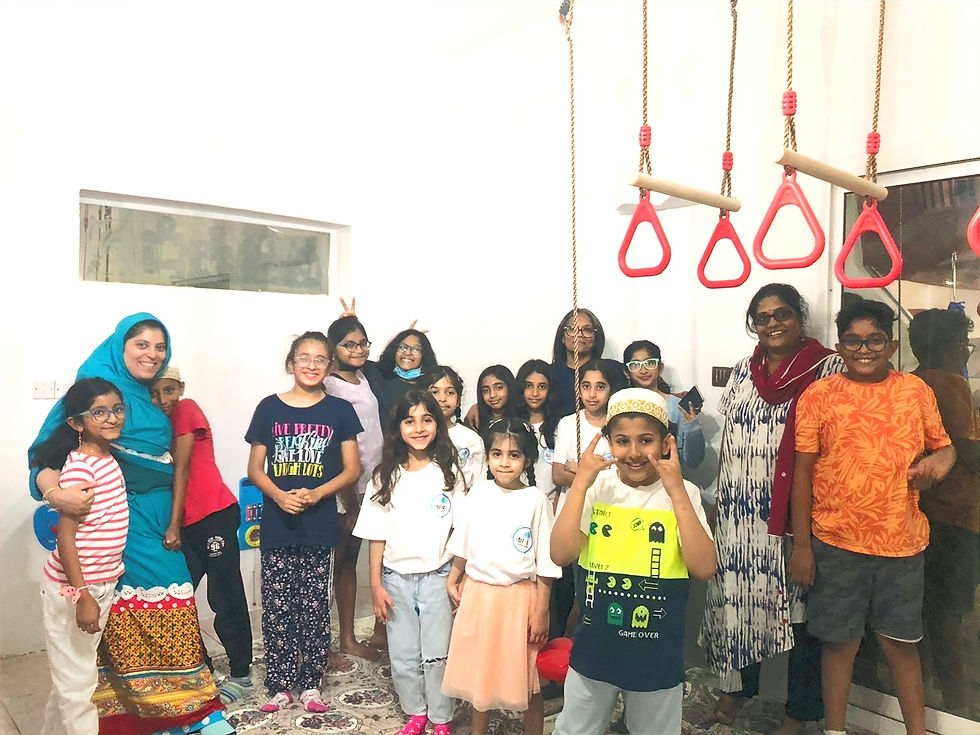The Essence of Inclusive Education
- Priti Shah
- Nov 17, 2023
- 2 min read
In today's diverse and dynamic educational landscape, inclusion has emerged as a cornerstone of fostering a society where everyone, regardless of differences, is valued and accepted. At its core, inclusion strives to eliminate prejudice and intolerance, championing equitable access and removing barriers for all. This fundamental human right extends beyond the confines of color, gender, or ability, aiming to create a learning environment that celebrates uniqueness and provides equal opportunities.
Where Inclusion Flourishes

The impact of inclusion resonates across various facets of our lives, from the workplace to the early years of education. In a professional setting, inclusive practices empower employees to have a voice, fostering collaboration, a sense of belonging, and a shared commitment to strategic goals. It cultivates a collaborative environment where diverse perspectives contribute to learning and development, ensuring equitable access to resources and strategic alignment.
Navigating the Early Years with Inclusion
Inclusion in the Early Years Foundation Stages (EYFS) has become a critical component of education, aligning with international human rights laws advocating for equitable education for all children. In this context, inclusion means fostering an environment where children with diverse learning and physical abilities are taught together. The inclusive classroom becomes a haven of acceptance, where each child is celebrated without fear of stigmatization or exclusion.
Benefits of Inclusion in Early Years Education
The positive effects of inclusion on early childhood development are noteworthy. Inclusive classrooms not only encourage interaction and relationship-building among children of all abilities but also adapt teaching methods to cater to diverse needs. Research indicates that such inclusive practices have a significant and positive impact on children in the EYFS, providing them with a secure and supportive foundation for future learning.

Cultivating Inclusive Mindsets
Embracing inclusion requires a mindful approach. From challenging stereotypes and avoiding assumptions to proactive education on the topic, fostering inclusion is an ongoing journey. Mindful communication, questioning privileges, and staying open to learning are key elements in building an inclusive environment.
Conclusion: Nurturing Potential Through Inclusion
In conclusion, the principles of inclusion in early schooling, particularly in the EYFS, greatly benefit children. At The Blue Umbrella we are committed to these principles, ensuring that each child, irrespective of their unique needs, is nurtured and guided toward realizing their full potential. In an inclusive setting, we witness not only academic growth but also the development of resilient, open-minded individuals prepared for a diverse and interconnected world.
Discover the transformative impact of inclusive education at The Blue Umbrella . Our commitment to fostering an inclusive environment in the Early Years Foundation Stages (EYFS) ensures that every child, regardless of their abilities, experiences a supportive and enriching educational journey. Join us in celebrating diversity, nurturing potential, and building a foundation for a lifetime of learning. Embrace the essence of inclusion – inquire about enrollment at our Skills Institute today!
For inquiries and enrollment, contact us at +971 568964185 or fill out the contact form at www.theblueumbrellaskill.com.




Comments